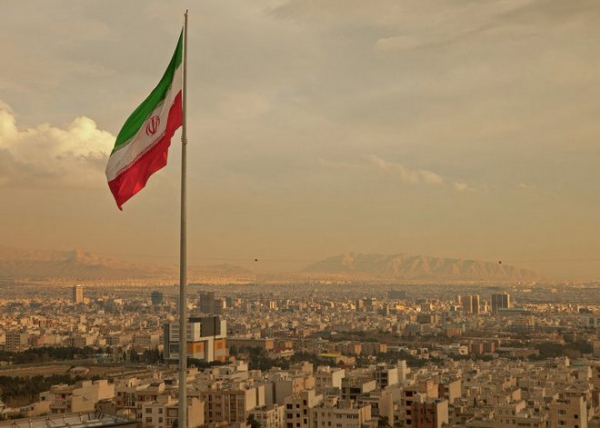Iran to be big winner from nuclear deal

By Sara Rajabova
The ‘historic’ nuclear deal between the world powers and Iran promises, as Iranian President Hassan Rouhani said, “to open new horizons”.
The July 14 agreement that put an end to the decade-long nuclear standoff between the West and the Islamic Republic is considered to be beneficial for both the West and Iran.
Iran, forced into a significant economic downturn and international isolation under the weight of international sanctions for many years, will absolutely be big winner more so than any other country.
Kamran Dadkhah, a professor of economics at Northeastern University in Boston, Massachusetts, believes the nuclear deal creates the possibility of economic progress for Iran, stressing that it will open the door for Tehran to rejoin the international community and the world economy.
Noting that Iran has much potential, Dadkhah said in the last 36 years, the country has however fallen tremendously behind other countries. This decline in the Iranian economy is obvious from following the data provided by Dadkhah.
Citing one example, he said the GDP per capita was $1,566 in South Korea, $1,778 in Turkey and $2,315 in Iran in 1980. Although the figure dramatically rose several times in South Korea and Turkey, $25,977 and $10,971, respectively, it only doubled in Iran reaching $4,763.
“Lifting of the sanctions could open the door for foreign investment and technology, it could be a step forward for Iran to join the World Trade Organization,” the expert said.
Iran has set joining the WTO as one of its top priorities. The sanctions imposed on Iran seem to be one of the major obstacles for the country on its way to the WTO membership.
The nuclear agreement is believed to facilitate economic relations between the West and the Islamic Republic. Many companies representing different sectors of the economy have voiced their intentions, and some of them even engaged in talks with Tehran, to return to the vast Iranian market immediately after removal of sanctions.
Dadkhah believes that the nuclear agreement can also give Iran an opportunity to pursue more friendly relations with other countries of the region.
He, however, noted that all of these require a political will and a change in government behavior. “In particular, the government’s main objective should be the welfare of the people rather protecting the privileges of the few in power who are enjoying rents.”
“People expecting better days ahead showed their happiness in Tehran’s streets. In the short run, the agreement will free large sums of Iranian assets blocked in other countries. In addition, Iran will have the opportunity to increase its oil and petrochemical exports. The increase in foreign exchange earnings and government revenues will be a boost to the Iranian economy,” the expert said.
However, the expert also didn’t rule out the side effects of sudden progress in the Iranian economy.
Some in Iran are wary of “the Dutch Disease,” should the country fail to properly exploit the expected flow of petrodollars following the lifting of sanctions and increase in revenues.
“The side effect of the increase in foreign exchange available could be the lowering of exchange rates for foreign currencies. The decline would be substantial if the government just pours the dollars into the market. The result will be a sharp increase in imports and a loss of exports. The government should set up an exchange market for foreign currencies and allow the market to determine a unified exchange rate. Further, it should limit its own sale of dollars in the market,” Dadkhah said.
He also considered that the lifting of sanctions would be beneficial in terms of bringing foreign investment and technology to many sectors of the Iranian economy, especially in the oil and gas fields.
“Iranian oil industry is in need of huge investment and modern technology. The same can be said about the gas industry. Iran needs investment in gas exploration and extraction as well as pipelines to carry the product to Europe and other markets,” Dadkhah said.
The expert considered that another area that can benefit is air transportation, where new fleets could revive this important industry.
The government has recently focused on replacing its aging aviation fleet. Since the country reached a nuclear agreement, it has anticipated a surge in air transportation and as a result, Iran is said to be keen to revamping its fleet.
Dadkhah believes that long-run prosperity for the Iranian economy is tantamount on structural changes and reversing the ill-conceived policies of the past.
“The Revolutionary Guard and other government organizations should get out of economic activities. The government has to promote a secure environment for capital and investment. If oil, gas or other international companies are expected to invest billions of dollars in Iran, they need to be assured of the safety of their capital and limits on the meddling in their affairs by government and its associated organizations. Regarding the oil sector, an issue may be the nature of ‘buy-back’ contracts,” the expert said.
--
Sara Rajabova is AzerNews’ staff journalist, follow her on
Twitter: @SaraRajabova
Follow us on Twitter @AzerNewsAz
Here we are to serve you with news right now. It does not cost much, but worth your attention.
Choose to support open, independent, quality journalism and subscribe on a monthly basis.
By subscribing to our online newspaper, you can have full digital access to all news, analysis, and much more.
You can also follow AzerNEWS on Twitter @AzerNewsAz or Facebook @AzerNewsNewspaper
Thank you!
